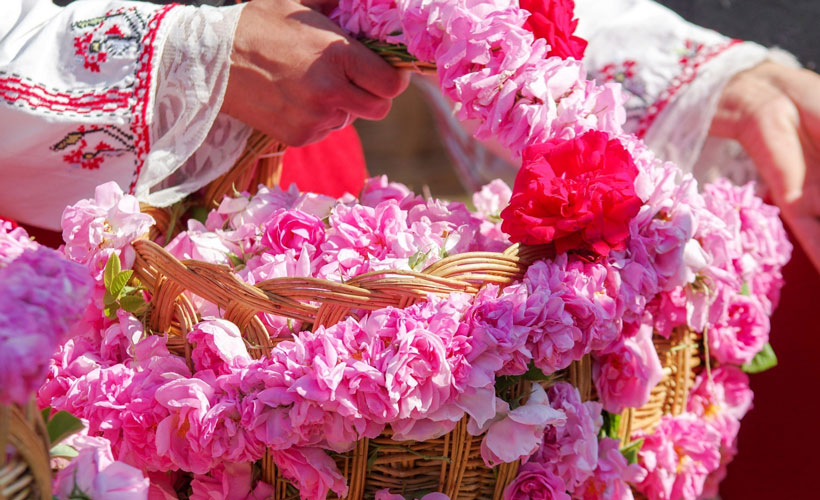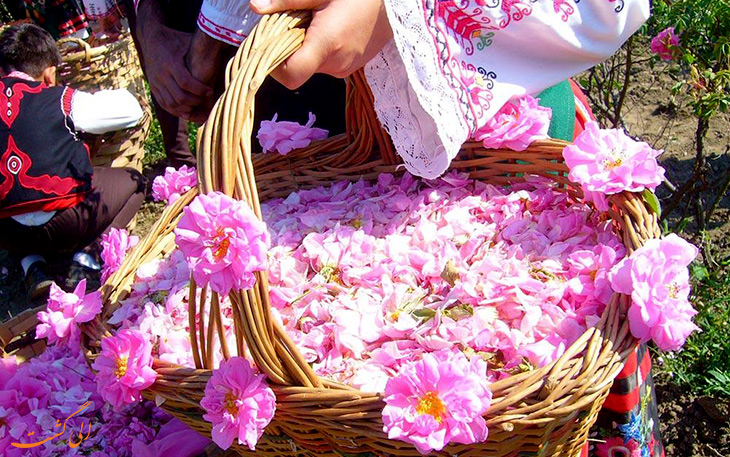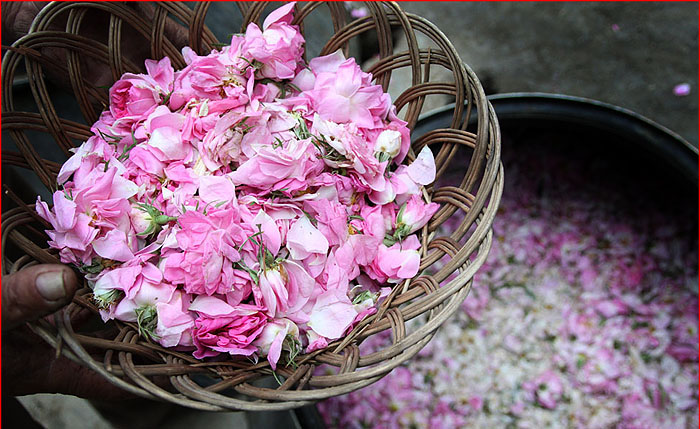When the Nowruz celebration starts we all know that the spring season has arrived with all of its blossoms, marvelous smells and fresh colors. In spring season the trees, plants, and fields turn green, blossoms appear, the lovely smell of flowers and plants spread everywhere by flying through the cool breeze of spring, all these signs together symbolizes new life, which contradicts the death symbol of winter season. Spring season gives a fresh state to people, an amazing feeling of starting all over again with a new beginning and leaving the past. This beautiful season that starts with fascinating Nowruz celebration, is simultaneous with interesting ceremony of “Golabgiri” which is the process of extraction of rosewater from Damask Rose, one of the oldest roses in the world that has a lot of uses including its usage in making a number of traditional foods and sweets, its usage for making some kind of perfumes, and its usage to make rosewater.

Just two to three weeks after “the day of nature”, which is the 13th day of Farvardin month (the first month of spring season) and the last day of Nowruz holidays, we have “Golabgiri” ceremony that starts when rose buds begin to open and takes place in a number of places in Iran, mainly in Ghamsar, Niasar and Barzak cities of Kashan county of Isfahan province which is 240 kilometers away from the capital of Iran, Tehran. The history of “Golabgiri” goes back to almost a thousand years ago as the usage of dry plants and distillate of plants are cited in the book of “The Canon of Medicine” of Ibn Sina (Avicenna) which was completed in 1025. “Golabgiri” is the name of the process of extraction of rosewater from Damask rose in Persian language and indeed because of its spectacular experience, it has turned to a ceremony that attracts thousands of tourists from all over the country to this place.

In fact this process involves, collecting and distilling of Damask rose by a traditional method of evaporation system. Damask rose which is called “Gole Mohammadi” in Persian is planted in many flower gardens in the areas that “Golabgiri” is done. One of the old famous places of “Golabgiri” is the Ghamsar city, a glowing treasure found in the charming deserts of Iran, in Kashan County of Isfahan Province; however it is also done in Niasar and Barzak cities as well as Meymand village in Fars Province and some other places in Iran, in which “Gole Mohammadi” grows. “Golabgiri” ceremony starts at almost late April and continues until mid-June annually, a time that the breathtaking and scented flowers grow up in particular places of Iran and the aromatic breath of these flowers fill the whole area. The interesting thing about the production of rosewater in these areas is that even though nowadays modern factories are constructed, still large part of the production of rosewater is done in traditional way; people collect the flowers together early in the morning, boil them and collect its water. Indeed, this method of making rosewater which its tradition dates back to 140 years ago, is one of the main reasons of attracting tourists to the rural homes and gardens that rosewater is produced in, where they can have an amazing and distinct experience of how rosewater is made. Iran is one of the pioneers in the industry of producing rosewater and Kashan is one of the most important tourism destinations of Iran in spring season especially from late April month till the end of May, and the reason behind it is the “Golabgiri” ceremony!

